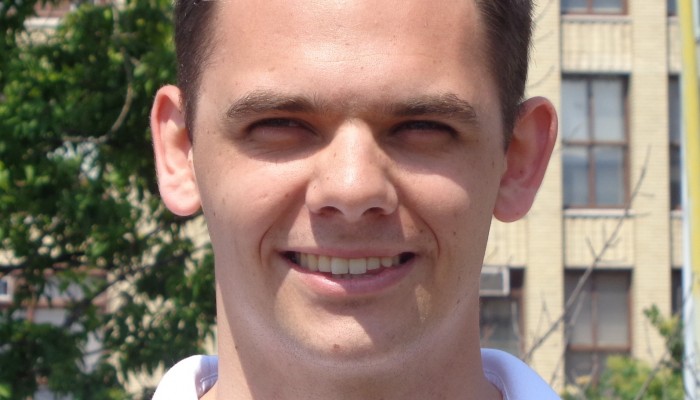Mathieu completed his PhD at Polytechnique Montréal in 2020, under the supervision of Prs. Andrea Lodi and Miguel Anjos. His research interests are in computational methods for mixed-integer linear and non-linear programming. In particular, he focuses on the design and implementation of optimization algorithms for structured problems.
Throughout his doctoral research, he has worked on the use of decomposition techniques in the context of power systems operation, the development of the open-source interior-point solver Tulip, and new cutting-plane techniques for mixed-integer conic optimization. Mathieu is a strong advocate of open-source software, and contributes to several Julia packages for optimization.
Articles
-
![[DOI]](https://cerc-datascience.polymtl.ca/wp-content/plugins/papercite/img/external.png) Anjos, M. F., Lodi, A. & Tanneau, M. (2019) A Decentralized Framework for the Optimal Coordination of Distributed Energy Resources. IN IEEE Transactions on Power Systems, 34.349-359.
Anjos, M. F., Lodi, A. & Tanneau, M. (2019) A Decentralized Framework for the Optimal Coordination of Distributed Energy Resources. IN IEEE Transactions on Power Systems, 34.349-359.
[Bibtex]@Article{Anjos2019DER, author = {Miguel F. Anjos and Andrea Lodi and Mathieu Tanneau}, title = {A Decentralized Framework for the Optimal Coordination of Distributed Energy Resources}, journal = {IEEE Transactions on Power Systems}, year = {2019}, volume = {34}, number = {1}, pages = {349-359}, month = {Jan}, issn = {0885-8950}, abstract = {Demand-response aggregators are faced with the challenge of how to best manage numerous and heterogeneous distributed energy resources (DERs). This paper proposes a decentralized methodology for optimal coordination of DERs. The proposed approach is based on Dantzig–Wolfe decomposition and column generation, thus allowing to integrate any type of resource whose operation can be formulated within a mixed-integer linear program. We show that the proposed framework offers the same guarantees of optimality as a centralized formulation, with the added benefits of distributed computation, enhanced privacy, and higher robustness to changes in the problem data. The practical efficiency of the algorithm is demonstrated through extensive computational experiments, on a set of instances generated using data from Ontario energy markets. The proposed approach was able to solve all test instances to proven optimality, while achieving significant speed-ups over a centralized formulation solved by state-of-the-art optimization software.}, doi = {10.1109/TPWRS.2018.2867476}, keywords = {Thermal loading;Batteries;Power demand;Energy resources;Optimization;Load modeling;State of charge;Column generation;Dantzig–Wolfe decomposition;demand response aggregation;distributed energy resources;mixed-integer linear programming;smart grid}, } - Liu, D., Lodi, A. & Tanneau, M. (2019) Learning chordal extensions. IN CoRR, abs/1910.07600..
[Bibtex]@article{DBLP:journals/corr/abs-1910-07600, author = {Defeng Liu and Andrea Lodi and Mathieu Tanneau}, title = {Learning chordal extensions}, journal = {CoRR}, volume = {abs/1910.07600}, year = {2019}, url = {http://arxiv.org/abs/1910.07600}, archivePrefix = {arXiv}, eprint = {1910.07600}, timestamp = {Fri, 25 Oct 2019 01:00:00 +0200}, biburl = {https://dblp.org/rec/journals/corr/abs-1910-07600.bib}, bibsource = {dblp computer science bibliography, https://dblp.org} }
Technical Reports
- Anjos, M. F., Lodi, A. & Tanneau, M. (2020) Design and implementation of a modular interior-point solver for linear optimization .
[Bibtex]@misc{Anjos2020tulip, title={Design and implementation of a modular interior-point solver for linear optimization}, author={Miguel F. Anjos and Andrea Lodi and Mathieu Tanneau}, year={2020}, eprint={2006.08814}, archivePrefix={arXiv}, primaryClass={math.OC} }

